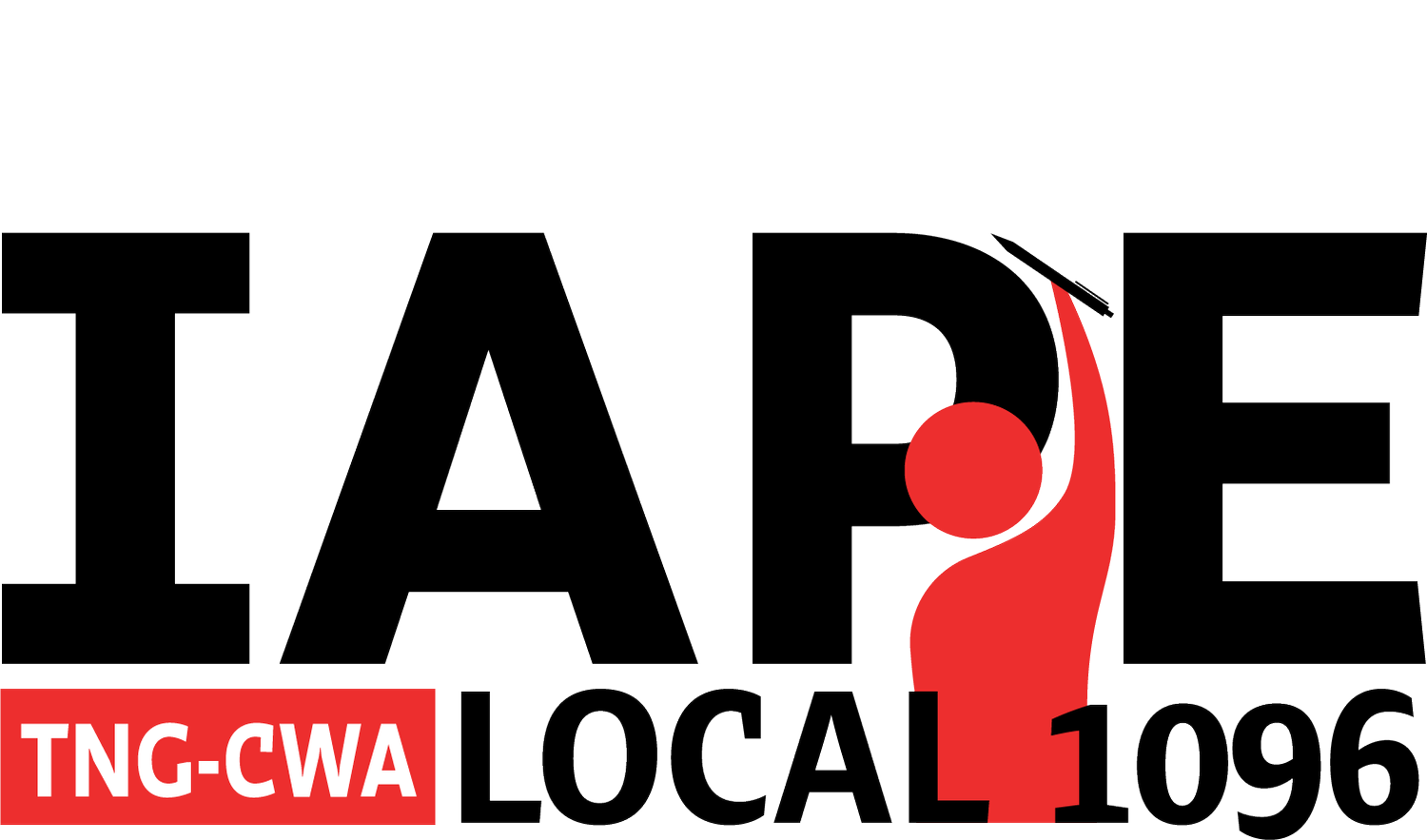June 17, 2016 E-MAIL PRINT
Day 4
Contract Bargaining FAQ
IAPE members — it has been a little more than three days since the Union exchanged contract proposals with Dow Jones management. And in that time, we've had two membership Q&A meetings (a small gathering in New York, a larger meeting in South Brunswick) and many of you have contacted the IAPE office with contract questions of your own.
In an attempt to keep everybody in the loop and on the same page, we thought you might appreciate this sampling of frequently asked (since Tuesday) questions, and how we see the Company's first attempt at a contract proposal document.
Q: Is the Company serious about these proposals?
A: Quite frankly, we don't know. It's a little odd to receive a document short on specifics, but with an emphasis on "concepts" in bargaining. Without a full proposal on plans for healthcare coverage, it's certainly hard to take this Dow Jones proposal seriously. We'll know better when (if?) management presents its healthcare proposal at our next bargaining session next Tuesday.
Q: There are a lot of references to "flexibility" in this management proposal. What does that mean?
A: It means they'd like to have any guarantees removed from our contract. And "coordination of benefits" means they want the "flexibility" to change any corporate benefits as they see fit, without worrying about restrictions against doing so contained in the IAPE contract. Healthcare, disability, life insurance, severance pay — under a "flexible" contract, the Company would have the ability to modify (read: slash) any of those benefits.
Oddly enough, the only area they don't want flexibility is in our Cost Of Living Allowance (COLA) protection. "We need cost certainty," they say. "We're looking ahead three, four, five years at a time" — which is why they propose the elimination of our COLA benefit.
So which do you really want, Dow Jones — flexibility or certainty?
Q: So they want to take away our severance pay?
A: In fairness, they did not mention severance pay during our first bargaining meeting — but eliminating any guarantees to severance pay means severance pay is no longer a guaranteed benefit, and no longer a deterrent to workforce reductions.
They did, however, mention short-term disability. Perhaps we'll see that proposal on Tuesday.
Q: Management has a proposal on pay equity. That's good, right?
A: That the Company continues to recognize our valid claims about pay disparity at Dow Jones is a good thing. However, their first proposal would see a return to an even more restrictive cap on annual pay increases than the one we successfully negotiated away in 2007 — and it would give even more discretionary pay power to managers.
Look, our highest-paid IAPE members aren't the Dow Jones managers who have told female employees and employees of color that merit increases aren't available — only to have those staffers find out through the grapevine that, yes, those raises were available after all. Management needs to correct the pay gap at Dow Jones — and they need to find the money somewhere else.
Q: So why has the Union only proposed pay equity for employees "regardless of sex" — why isn't race specifically mentioned?
A: The Union's proposal goes hand-in-hand with our existing contract language covering discrimination, and borrows heavily from language in the Equal Pay Act. "Employees of similar seniority" means all employees of protected classes defined in the foregoing Nondiscrimination section. "Regardless of sex" is meant to underscore the statistically larger gap in pay between male and female employees.
Q: Why has the Union proposed elimination of our annual healthcare premium cap?
A: What we've actually proposed is a modification of the entire contract section on healthcare, resulting in a freeze on healthcare costs (all costs — premiums, copays, deductibles, etc.) and plan changes for the term of the next contract. With no cost increases and no plan changes, there would be no need for a cap on annual premium hikes.
Q: Is this the first time we've negotiated a contract under News Corp ownership?
A: We were just concluding contract negotiations in 2007 as the Bancroft family wrapped up their sale of Dow Jones & Company to News Corporation. Dow Jones was Murdoch-owned when we negotiated our 2010-14 contract (and our 2011-16 Bowling Green contract), and our 2014 and 2015 extensions.
Q: What can we do to keep management from negotiating these changes?
A: The best question of the week.
It will be up to all of us to demonstrate to the Company that the Union bargaining committee speaks for all of us — and that we are united in our opposition to concessionary proposals.
By now, many of you have asked for one of our "WSJ UNION MADE" t-shirts or other items, meant to improve our Union visibility in the workplace and support our bargaining team. If you haven't yet picked up any of our IAPE items, please reach out to your area IAPE steward or director. In New York especially, please contact reporters Daisy Maxey or Michael Wursthorn, or interactive news writers Rob Johnson and Steve Nakrosis.
Some of our locations (we're looking at you again, Washington) have been gobbling up our stock of IAPE t-shirts — so grab one while they're still available (or, before we need to order more).
And if you are interested in acting as an IAPE steward during this process — someone to pass along information to your coworkers, remind them to read our bargaining notices, distribute IAPE haberdashery and the like — we'd love to have you involved in the bargaining effort. Send a note to union@iape1096.org and let us know where you're located.
This is Day 4. We have a long road of contract bargaining ahead — and we'll need to be more creative than ever before in demonstrating our opposition to management. We've done it before, with your support, and we'll do it again.
Stay tuned.

